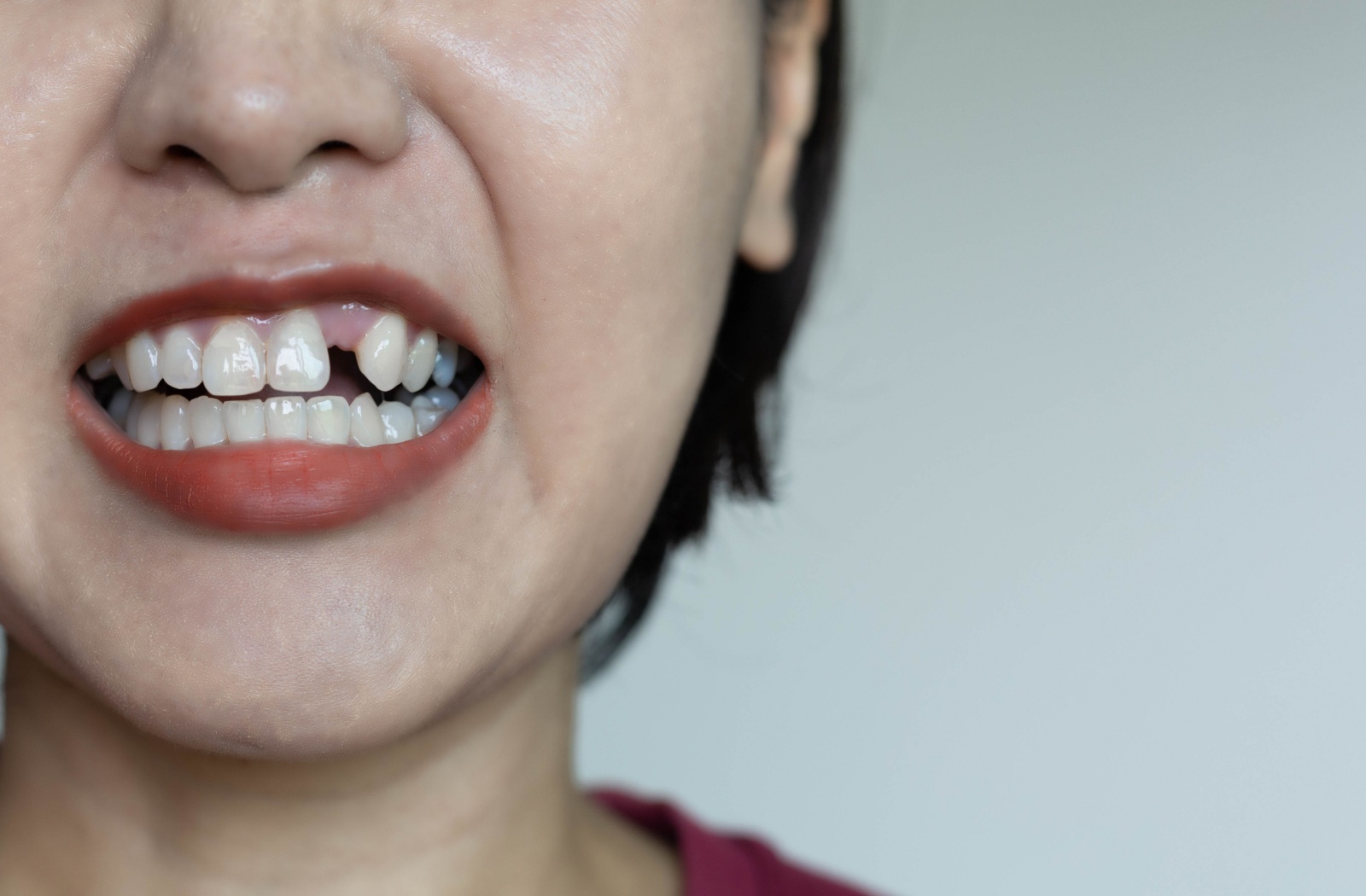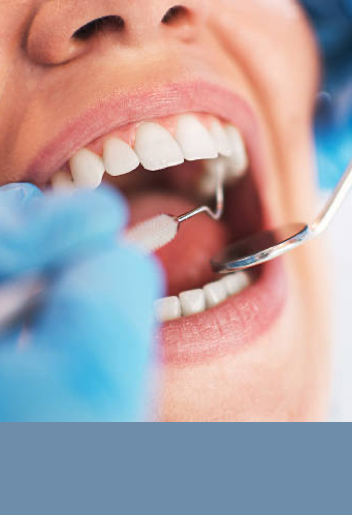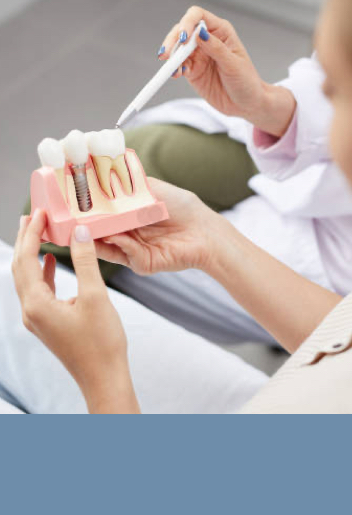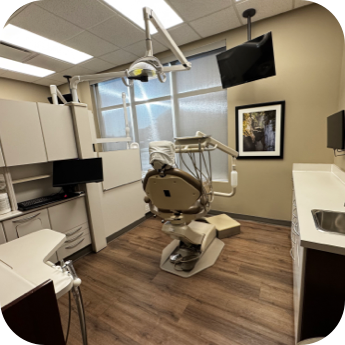Losing a tooth—or several—can feel overwhelming. Not only does it affect your smile, but it can also impact functions like chewing, talking, and even your confidence. The good news? Modern dentistry offers many effective options to restore your smile and functionality, including dental implants, dentures, and bridges.
However, picking the right tooth replacement solution depends on several factors, including your budget, oral health, and aesthetic goals–not to mention how many teeth you hope to replace!
The Importance of Replacing Missing Teeth
Replacing missing teeth is essential for several reasons:
- Missing teeth can affect your ability to chew correctly, leading to dietary restrictions and potential nutritional deficiencies.
- Gaps in your teeth may cause the remaining teeth to shift, impacting your bite alignment and leading to further dental issues.
- Missing teeth can contribute to bone loss in the jaw over time, as the absence of a tooth root reduces stimulation to the bone.
Beyond physical health, replacing missing teeth also helps restore confidence and improves speech, providing both functional and aesthetic benefits.
What to Consider Before Choosing a Tooth Replacement Option
Several factors affect your choice of tooth replacement. Understanding these will help you choose the best solution for your lifestyle and preferences.
1. How Many Teeth Need Fixing?
Partial dentures, bridges, or implants are excellent choices for those missing multiple teeth, while full dentures or implant-supported dentures can benefit those without teeth. A dental implant is the easiest, most natural fix.
2. Budget Constraints
Cost plays a role in deciding on an option. Dental implants are often the most durable choice but sometimes have the highest price tag. Dentures and bridges can be more affordable options depending on your situation.
3. Health & Bone Structure
Your oral health and existing bone structure also matter! Implants require adequate bone density to provide a strong foundation for an implant’s durability. However, traditional dentures work significantly better for those with significant bone loss or chronic oral health issues.
4. Aesthetic Goals
Are you looking for the most natural appearance? Implants lead the way in terms of aesthetics and realism. However, advancements in denture technology mean even dentures look more natural than they used to.
Three Common Solutions for Missing Teeth
Now that we have an overview of key considerations let’s explore the three main tooth replacement options: implants, dentures, and bridges.
Dental Implants
Dental implants are the gold standard for replacing missing teeth. They involve surgically embedding a titanium post into the jawbone. The implant acts as a tooth root and supports a crown, bridge, or denture for a natural look and feel.
Types of Implants
- Single Tooth Implants: Replaces one tooth.
- Implant-Supported Bridges: Replaces multiple teeth in a row.
- Implant supported Dentures: Uses implants to secure a complete set of artificial teeth.
Pros of Implants
- Permanence and durability (can last many years or even a lifetime with proper care).
- Superior aesthetics that closely mimic the look and feel of real teeth.
- Prevent jawbone deterioration by stimulating bone growth.
- Support comfortable chewing and speaking, just like natural teeth.
Cons of Implants
- Higher cost.
- Requires surgical intervention, which includes recovery time.
- It is not ideal for individuals with insufficient bone density or certain health conditions.
Dental Bridges
A dental bridge is fixed between two existing teeth, using them as support (or “anchors”) to fill the gap left by a missing tooth. Some modern bridges are also implant-supported. This is often the best solution for those only missing one tooth or a few teeth in a row or those looking for mid-range options between dentures and implants.
Pros of Dental Bridges
- Achieves a natural look.
- Faster procedure than implants (usually completed in 1-2 visits).
- Fixed in place—no need to remove dentures.
Cons of Dental Bridges
- Relies on healthy adjacent teeth for support.
- Not ideal for large gaps or extensive tooth loss.
- Durability is good but not as long-lasting as implants.
Dentures

Dentures are removable dental appliances that replace missing teeth. They’re a long-standing solution that has significantly improved fit and appearance.
Types of Dentures
- Partial Dentures: Designed to fill gaps when you still have remaining natural teeth.
- Full Dentures (Conventional Dentures): Replace an entire arch when all teeth are missing.
Pros of Dentures
- It is more affordable.
- Suitable for those with underlying health conditions, or not enough bone structure to support an implant.
- Easy to remove for cleaning and maintenance.
Cons of Dentures
- It may slip or cause discomfort if not correctly fitted.
- Requires periodic adjustments as the shape of your gums changes.
- Less natural appearance compared to implants.
What to Expect Once You’ve Decided on a Solution
Choosing to restore your teeth is a big step, so it’s essential to understand the next phase of your smile transformation:
- Consultation with your dentist: Your dentist will thoroughly evaluate, including scans and X-rays, to ensure you’re a good candidate for your chosen solution.
- Treatment timeline:
- Implants: Expect a process that spans several months, including surgery and healing time.
- Dentures: Can be made and fitted within weeks.
- Bridges: Often ready within days to weeks.
- Adjustment period:
- Dentures may feel bulky initially but will settle with time.
- Implants may require a healing phase before final crowns or bridges are placed.
- Bridges generally have a short adjustment period.
- Ongoing maintenance:
- Implants require brushing and flossing, just like natural teeth.
- Dentures need cleaning and occasional adjustments to ensure a good fit.
- Bridges require brushing and flossing, just like natural teeth.
Reclaim Your Smile Today
Fixing missing teeth isn’t just about appearances—it’s about restoring your confidence, health, and quality of life. Whether you choose implants, dentures, bridges or another solution, understanding your options will help you make an informed decision. Country Hills Dental Centre knows that deciding which dental replacement option is best for you can be challenging. Contact us today to book a consultation to discuss which solution best suits your goals, health, and budget.












